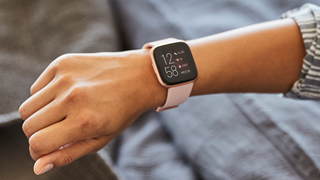It didn’t take long for Fitbit to catch up. The company quietly enabled blood oxygen tracking on most of its wearables: some Versa, Ionic, and Charge 3 users noticed that their devices were updated, seemingly overnight, and took to Reddit (opens in new tab)to discuss. It’s still unclear what determines who or which devices get the update, as its doesn’t seem to be restricted to Premium accounts or device type. However, it’s important to note that this technology isn’t new to Fitbit. In fact, the hardware for the update has existed for the past few years, but the update hasn’t been made until now. And it’s one that more and more companies who make wearables with health monitoring tools and tech are likely to make in the near future. So how does Fitbit compare to other brands? Now, Fitbit is competing with Withings with this new update. With the update, the Charge 3 and the Versa 2 will be able to monitor blood oxygen levels - a feature that the Apple Watch doesn’t yet have. Fitbit devices can also monitor sleep quality, while the Apple Watch requires a third-party app to be able to perform the same task. The Apple Watch 5 model still has some health monitoring tools and capabilities that Fitbit does not, such as being able to detect when the wearer has suffered a hard fall, or when the wearer has been exposed to high sound levels for too long. There’s still a lot of room for growth: Google recently acquired Fitbit, and the sky’s the limit when it comes down to what kind of technology can be integrated into Fitbit wearables now. As for Apple, the company is relatively aware of their shortcomings and is currently testing sleep tracking for future Apple Watch models. So which one is right for you? We love both the Apple Watch and the Versa 2, which is already considered to be a true rival to the Apple Watch (opens in new tab). Check out our picks for the best smartwatches (opens in new tab) and the best fitness trackers (opens in new tab) to get started.





